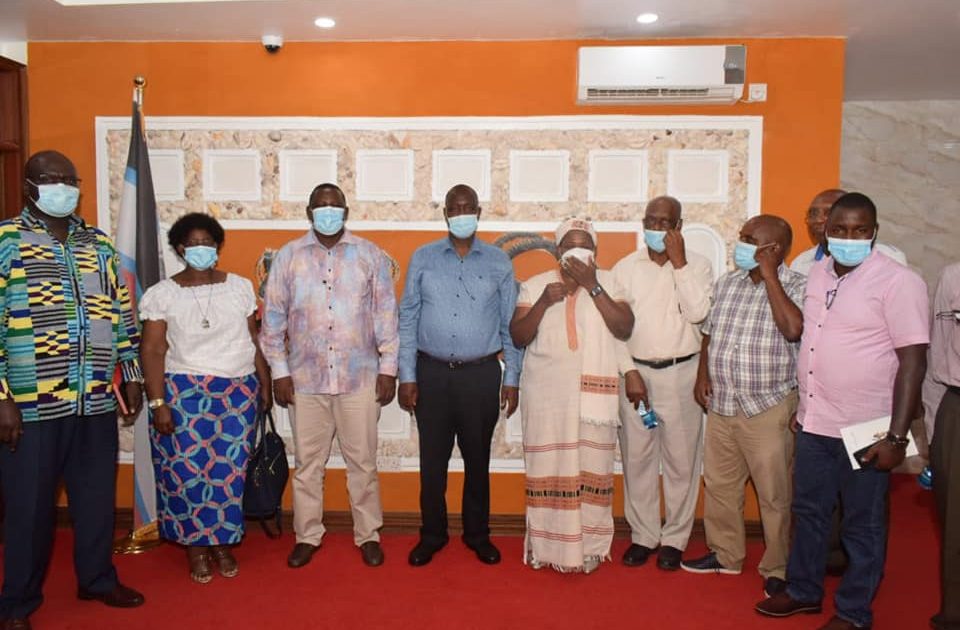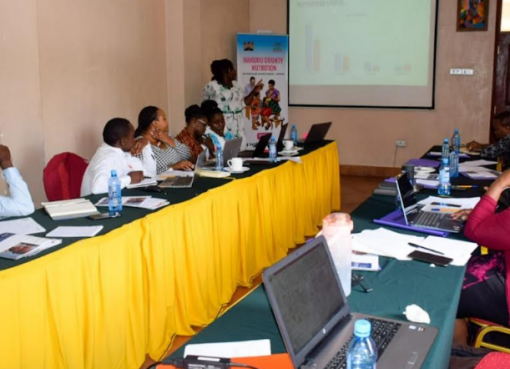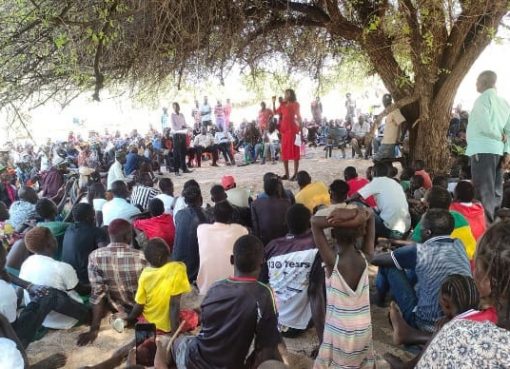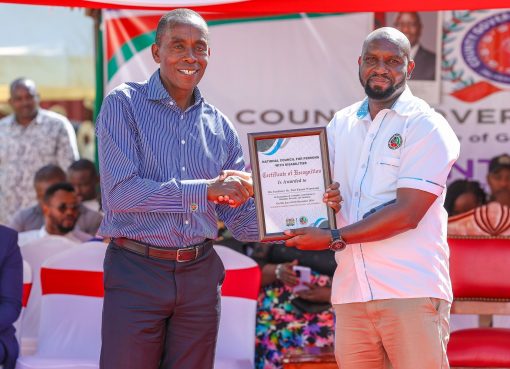The county government of Kwale has announced that it will fund youth pursuing courses on the blue economy sector.
Kwale County will use the bursary kitty through the ‘Elimu ni Sasa’ initiative to sponsor at least 120 students interested in blue economy studies.
This comes as the national government is constructing a Sh1.2 billion regional Maritime Center of Excellence in Kombani town in Matuga Sub County.
The Maritime Center of Excellence is expected to open the blue economy sector which has remained unexploited for decades.
Kwale Governor, Salim Mvurya said the move by his administration is to ensure that they empower the youth for the incredible opportunities found in the blue economy sector.
He spoke after he hosted members of the Board of Directors of Bandari Maritime Academy in his Kwale office where issues of mutual benefit were discussed.
The Board led by its chairman Prof. Kinandu Muragu and CEO Francis Muraya wants closer partnership with Kwale County on enhancing opportunities and benefits of the Blue Economy.
Governor Mvurya said the maritime sector was a less tapped area which his administration will push for opportunities for Kwale youth.
“We shall take Kwale youth for training using our bursary kitty. We want to fill up at least two classrooms of pilots and nautical engineers from Kwale. We want to take advantage and make maritime a priority in this skill empowering program,” he said.
He went on ‘the ocean, apart from tourism, must become more useful to Kwale people and we shall work closely with Bandari Maritime Academy, to achieve the same.
Prof Muragu and Mr Muraya pledged to support Mvurya’s government in this endeavor.
Governor Mvurya added that the blue economy is an important sector that will address the serious problems of unemployment among the youth in the region.
‘‘This sector has amazing opportunities which have not been realized for a long time and it’s good that the government has put effort and directed resources to ensure that the dream of the blue economy becomes alive,” Mvurya said.
The governor noted that the county government has a vision of being the champion of maritime management and being able to use available resources to boost the economy of the coastal county.
He said the county government through the Department of Agriculture, Livestock and Fisheries will conduct exhibitions on matters of maritime commerce across the county to educate youth on the blue economy and encourage them to apply for the courses available.
‘‘This is among the sectors that can help the people of Kwale to defeat poverty. As the government, we want to make sure that every person, especially the youth has skills in the blue economy sector,” Mvurya said.
The county boss noted that the devolved unit will coordinate with experts from Bandari Maritime Academy in Mombasa to discover more opportunities from the ocean.
He said apart from the tourism sector, the ocean has many opportunities that can benefit the residents.
Mvurya said the ocean needs careful management and stewardship to ensure it can continue to delive wealth to the people in the long term.
“For a long time, people have been using the ocean for tourism but there is more that can be done in this ocean. If we get the right personnel in our county then we can have an economic breakthrough,” he said.
The governor expressed his gratitude to the national government for initiating the Shimoni Port project in the county which is designed for maritime affairs.
He said his administration will support the project which is set to open the county to overseas fish markets.
The port will be a pioneer fishing harbor in the county and is expected to have a positive impact on trade and economic growth in the coastal region.
The proposed industrial port infrastructure will include a multipurpose berth that will incorporate fish and conventional cargo handling and cold storage facilities besides a fish processing plant.
By Raymond Zaka and Hussein Abdullahi





